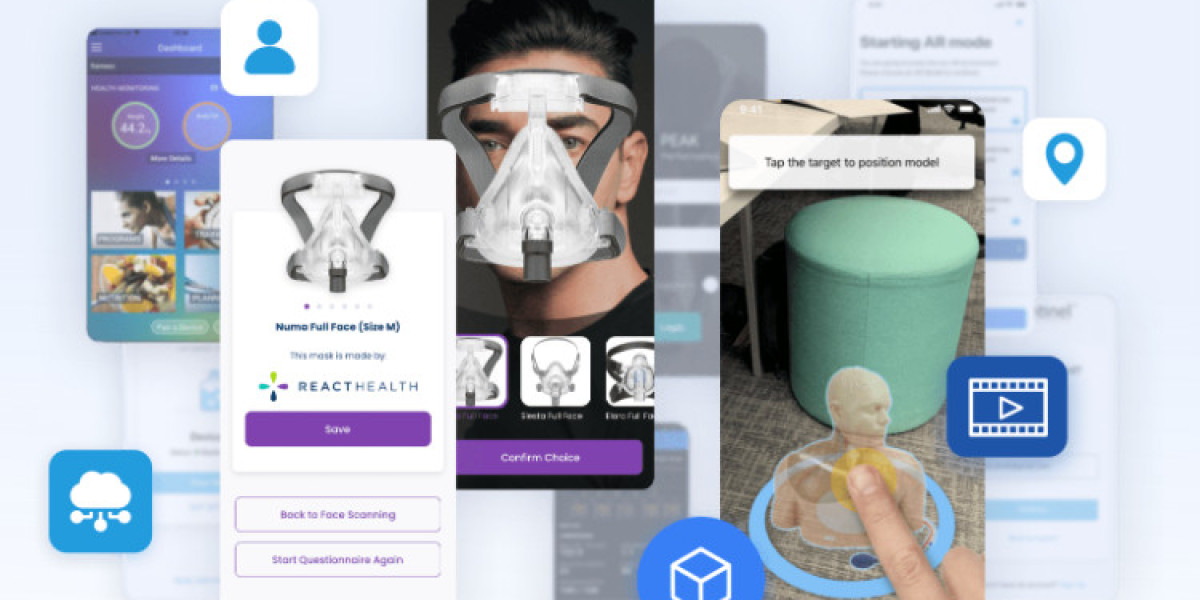In recent years, mobile health applications, or mHealth apps, have emerged as a vital tool in the healthcare sector. These applications empower users to manage their health, track wellness metrics, and engage in preventive care in an increasingly digital world. As healthcare continues to evolve, mHealth app development companies play a crucial role in bridging the gap between technology and patient care, paving the way for innovative solutions that address various health challenges. This article explores the significance of mhealth app development company, the key features of successful applications, emerging trends, and the future of mobile health technology.
What Are mHealth Apps?
mHealth apps are mobile applications designed to support health-related activities. They can range from fitness trackers and diet planners to telemedicine solutions and chronic disease management tools. These apps can be utilized by various stakeholders in the healthcare system, including patients, healthcare providers, and health insurance companies, to improve health outcomes and facilitate communication and engagement.
Importance of mHealth Apps
- Accessibility: mHealth apps provide healthcare information and services directly to users’ smartphones, making healthcare more accessible to individuals in remote or underserved areas.
- Patient Empowerment: With the ability to track personal health metrics, users gain more control over their health, leading to increased motivation and adherence to treatment plans.
- Cost-Effectiveness: By promoting preventive care and chronic disease management, mHealth apps can reduce healthcare costs for patients and providers alike.
- Enhanced Communication: These applications facilitate better communication between patients and healthcare providers, leading to improved care coordination and patient satisfaction.
Role of mHealth App Development Companies
mHealth app development companies are specialized firms focused on creating, designing, and maintaining mobile health applications. They play a vital role in shaping the future of healthcare by leveraging technology to develop solutions that cater to diverse health needs. Here are some key functions these companies perform:
1. Identifying User Needs
Before developing an app, it’s essential for developers to understand the specific needs of the target audience. This involves conducting market research, analyzing user behavior, and gathering feedback from healthcare professionals. By identifying the gaps in existing solutions, mHealth app development companies can create products that genuinely meet the demands of users.
2. Designing User-Centric Applications
User experience (UX) design is crucial in mobile app development. A well-designed app should be intuitive, engaging, and easy to navigate. mHealth app development companies employ UX/UI designers to create user-friendly interfaces that enhance user engagement and retention. Elements like simple navigation, appealing visuals, and accessible information are essential for ensuring users can effectively utilize the app.
3. Ensuring Regulatory Compliance
Healthcare is a highly regulated industry, and mHealth app development companies must ensure that their applications comply with relevant regulations, such as the Health Insurance Portability and Accountability Act (HIPAA) in the United States. This includes implementing data privacy measures, obtaining necessary certifications, and following guidelines to protect patient information. Compliance not only safeguards user data but also enhances the app’s credibility and trustworthiness.
4. Incorporating Cutting-Edge Technology
To create innovative solutions, mHealth app development companies integrate advanced technologies into their applications. This can include:
- Artificial Intelligence (AI): AI can be used to analyze user data, provide personalized recommendations, and develop predictive models for health outcomes.
- Telemedicine Integration: Many mHealth apps now include telehealth features, allowing users to consult healthcare providers remotely through video calls or chat.
- Wearable Device Integration: By syncing with wearables like smartwatches or fitness trackers, mHealth apps can provide real-time health data, enhancing user engagement and tracking capabilities.
- Big Data Analytics: Companies utilize big data to analyze health trends and user behavior, allowing for more tailored health solutions.
5. Testing and Quality Assurance
Before launching an app, extensive testing is necessary to ensure functionality, security, and user experience. mHealth app development companies conduct various tests, including usability testing, performance testing, and security testing, to identify and fix potential issues. This quality assurance process is vital to provide a seamless experience for users and maintain the app’s reputation.
6. Ongoing Support and Maintenance
The development process does not end with the app launch. mHealth app development companies provide ongoing support and maintenance to ensure the application remains functional and relevant. This includes regular updates, bug fixes, and enhancements based on user feedback and evolving healthcare trends.
Key Features of Successful mHealth Apps
When developing mHealth applications, certain features can significantly enhance their effectiveness and user satisfaction. Here are some essential features that successful mHealth apps should incorporate:
1. User Registration and Profiles
A smooth registration process allows users to create personalized profiles that store their health information, preferences, and activity history. This feature enables the app to provide tailored content and recommendations based on individual needs.
2. Health Tracking and Analytics
Successful mHealth apps provide users with tools to track various health metrics, such as physical activity, nutrition, medication adherence, and sleep patterns. Integrating analytics features allows users to visualize their progress over time and make informed decisions about their health.
3. Telehealth Features
Incorporating telehealth functionalities, such as video consultations and secure messaging with healthcare providers, enhances user convenience and access to care. Users can consult with professionals without needing to visit a clinic physically.
4. Reminders and Notifications
Timely reminders for medication, appointments, and health goals can significantly improve adherence to treatment plans. Notifications keep users engaged and motivated, encouraging them to take proactive steps toward their health.
5. Educational Resources
Providing educational content within the app, such as articles, videos, and tips, helps users better understand their health conditions and the importance of self-management. This feature empowers users with knowledge to make informed decisions.
6. Community Support
Integrating community features, such as forums or social media sharing, can foster a sense of belonging among users. Support groups and forums allow individuals to connect, share experiences, and motivate each other in their health journeys.
Challenges in mHealth App Development
While mHealth apps hold immense potential, there are several challenges that development companies must address:
1. Data Security and Privacy Concerns
With sensitive health information being stored and transmitted through mobile applications, ensuring data security is paramount. Developers must implement robust encryption methods, secure data storage, and compliance with privacy regulations to protect user data.
2. Fragmented Market
The mHealth app market is saturated with numerous applications, making it challenging for new entrants to stand out. Development companies need to focus on unique features, superior user experience, and targeted marketing strategies to attract users.
3. User Engagement and Retention
Maintaining user engagement over time can be difficult. Developers must continuously enhance the app’s features and usability, incorporating user feedback to keep the experience fresh and engaging.
4. Interoperability
For mHealth apps to be effective, they need to integrate with existing healthcare systems and electronic health records (EHRs). Achieving interoperability between different platforms and technologies can be a complex task.
5. Regulatory Compliance
Navigating the regulatory landscape can be daunting for mHealth app development companies. Staying up to date with changing regulations and ensuring compliance can require significant resources and expertise.
The Future of mHealth App Development
The future of mHealth app development is promising, driven by technological advancements and changing healthcare dynamics. Here are some trends that are likely to shape the future of mHealth apps:
1. Increased Personalization
As technology advances, mHealth apps will increasingly focus on delivering personalized experiences. By leveraging AI and machine learning, developers can create apps that adapt to users’ preferences, behaviors, and health conditions, resulting in more tailored recommendations and interventions.
2. Enhanced Data Analytics
The integration of big data analytics will enable mHealth apps to provide deeper insights into user health trends and outcomes. This data-driven approach will empower users and healthcare providers to make informed decisions based on comprehensive health information.
3. Integration of Virtual Reality (VR) and Augmented Reality (AR)
VR and AR technologies have the potential to revolutionize health education and patient engagement. Future mHealth apps may incorporate these technologies to provide immersive experiences for users, such as virtual fitness classes, guided meditations, or interactive health education.
4. Focus on Mental Health
The importance of mental health has gained prominence, leading to an increase in the demand for mental health-focused mHealth apps. Future applications will likely offer features that promote mental well-being, such as mood tracking, stress management tools, and access to mental health professionals.
5. Collaboration with Healthcare Providers
As the healthcare ecosystem evolves, mHealth app development companies will increasingly collaborate with healthcare providers, insurers, and researchers to develop solutions that align with clinical practices. This collaboration can enhance the credibility and effectiveness of mHealth applications.
6. Regulatory Evolution
As mHealth apps become more prevalent, regulatory bodies will likely adapt to address new challenges and technologies. Developers must remain vigilant and proactive in understanding and complying with evolving regulations to ensure the success of their applications.
Conclusion
The rise of mHealth app development companies represents a transformative shift in healthcare delivery. These companies play a pivotal role in creating innovative solutions that empower users to take charge of their health, promote preventive care, and enhance communication with healthcare providers. By focusing on user needs, incorporating advanced technologies, and addressing challenges, mHealth app development companies can shape the future of healthcare.






